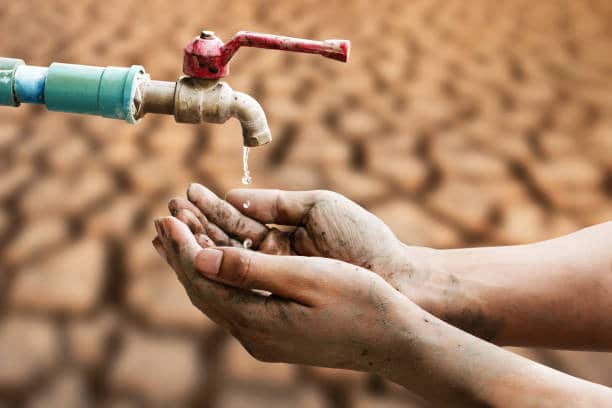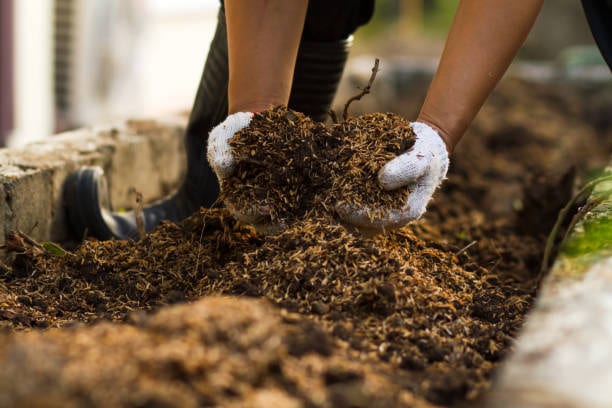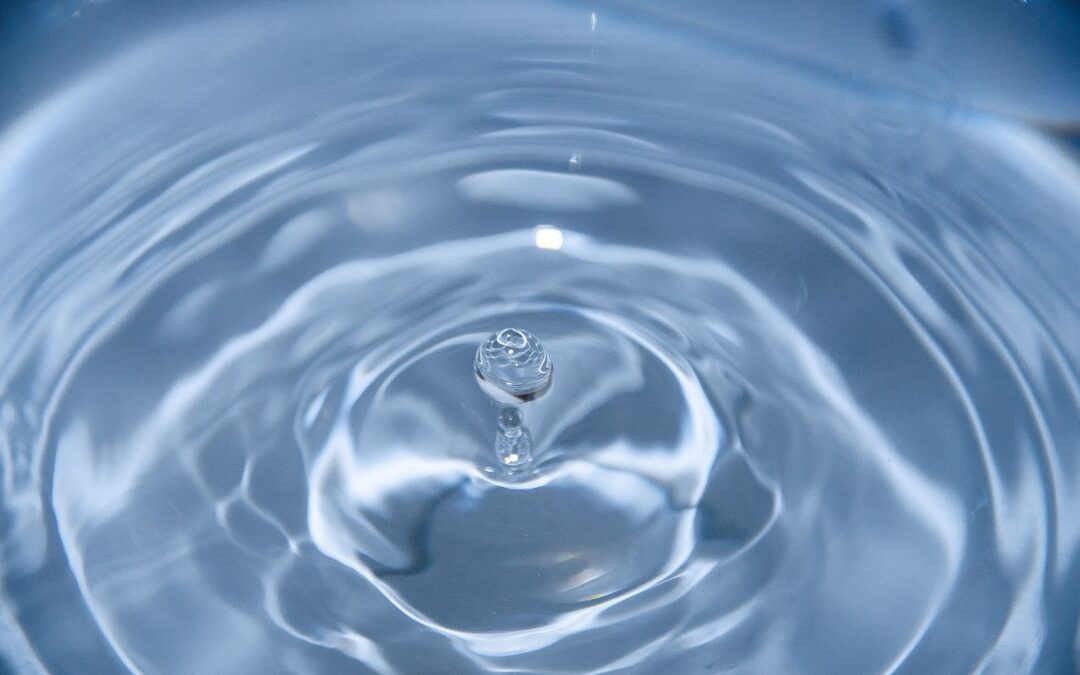Water in sustainable agriculture is one of many topics of paramount importance in today’s world. Water serves as the lifeblood of agriculture, and understanding its role in sustainable practices is essential.
In a world grappling with water scarcity and the far-reaching effects of climate change, comprehending the intricate connection between water management and sustainable agriculture is crucial.
In this article, we at CPAPwater will delve into the various aspects of water in sustainable agriculture, including efficient water management, irrigation systems, and conservation practices, all aimed at ensuring food security and preserving our planet’s precious freshwater ecosystems.
Water Scarcity In Agriculture

Across the globe, water scarcity is becoming increasingly evident. The demand for water is surging due to population growth, urbanization, and industrialization, while freshwater supplies remain limited. According to the United Nations, nearly one-third of the world’s population currently lacks access to safe drinking water, and over two billion people face water scarcity during at least one month of the year.
Agriculture is a major consumer of freshwater resources, accounting for approximately 70% of global water withdrawals. When water is scarce, agriculture is among the first sectors to feel the effects. Reduced water availability leads to lower crop yields, decreased agricultural productivity, and increased competition among water users.
In many regions, farmers struggle with irrigation management to secure adequate water, which is essential for growing crops efficiently and ensuring food security.
Water scarcity is not evenly distributed globally; it varies significantly from region to region. Some areas face chronic water shortages, while others have more abundant water resources. Effective water resources management is crucial in addressing these regional disparities, and it has profound implications for agricultural practices.
In arid and semi-arid regions, farmers are forced to adopt water-efficient techniques like drip irrigation and rainwater harvesting, while in water-rich regions, excess water can lead to issues such as soil erosion and waterlogging.
Efficient Water Use
Efficient water use in agriculture is not just a desirable practice; it’s an imperative. As we confront the challenges of water scarcity and the need for sustainable agricultural production, adopting techniques and practices that maximize water efficiency becomes paramount.
Techniques For Efficient Water Use In Agriculture
- Drip Irrigation: Drip irrigation systems deliver water directly to the root zones of plants, reducing water wastage through evaporation and runoff. This precise method ensures that crops receive the water they need, precisely when they need it.
- Precision Farming: Precision agriculture employs technology such as GPS and sensors to optimize resource use, including water. It enables farmers to tailor irrigation and fertilization to the specific needs of different parts of their fields, minimizing waste.
- Soil Moisture Monitoring: Monitoring soil moisture levels allows farmers to make informed decisions about irrigation timing, preventing overwatering and underwatering, both of which can harm crops.
- Rainwater Harvesting: Collecting and storing rainwater is a sustainable way to supplement irrigation needs, especially in regions reliant on irrigated agriculture. Rainwater harvesting systems can range from simple rain barrels to more complex cisterns and catchment systems.
- Conservation Tillage: Reduced tillage practices help maintain soil structure, preventing excessive water runoff and erosion. This approach retains moisture in the soil and enhances its ability to absorb water.
- Mulching and Cover Cropping: Mulch and cover crops act as natural water conservers. They reduce evaporation, protect the soil from temperature extremes, and promote moisture retention.
- Water-Efficient Crop Selection: Some crops are inherently more water-efficient than others. Choosing drought-resistant or drought-tolerant crop varieties is a key strategy in water-conscious farming.
- Regenerative Agriculture Practices: Regenerative agriculture focuses on enhancing soil health and biodiversity, which, in turn, can improve water retention and reduce water requirements.
- Aquaponics and Hydroponics: These soilless farming techniques use recirculating water systems, significantly reducing water usage compared to traditional soil-based farming.
Benefits of Efficient Water Use
Efficient water use in agriculture brings a multitude of benefits. It not only conserves a precious resource but also enhances agricultural sustainability. By adopting these practices, farmers can achieve:
- Increased crop yields and productivity
- Lower production costs through reduced water and energy usage
- Enhanced soil health and structure
- Reduced environmental impact, including lower soil erosion and pollution
- Improved resilience to drought and changing climate conditions
Sustainable Farming Practices

Sustainable farming practices play a pivotal role in ensuring that agriculture remains environmentally responsible and capable of meeting the world’s growing food demands. Below are the key sustainable farming practices:
Organic Farming And Water Conservation
Organic farming practices prioritize soil health and the balance of natural ecosystems. By avoiding synthetic chemicals and focusing on composting and organic matter incorporation, organic farming promotes better soil structure and moisture retention, reducing the need for excessive irrigation water and contributing to conserve water.
Also Read: Uncovering Risks: 3 Harmful Chemicals in Tap Water
Crop Rotation And Soil Health
Crop rotation is a time-tested technique that involves alternating crops in specific sequences. This practice helps break the cycle of soil-borne diseases and pests, reducing the reliance on chemical pesticides and fertilizers. Healthier soils with improved organic matter content also retain moisture more effectively.
Reduced Tillage Methods
Conventional tillage can disrupt soil structure and lead to increased water runoff and erosion. Reduced tillage methods, such as no-till or minimal tillage, disturb the soil less, preserving its natural structure and moisture-holding capacity.
Integrating Livestock And Crops For Water Management
Integrating livestock and crop farming can be a sustainable water management strategy. Animal manure, when used as fertilizer, enhances soil fertility and water retention. Moreover, rotational grazing practices, as part of comprehensive water management practices, can reduce the need for mechanical irrigation by allowing pastures to recover and maintain moisture.
These sustainable farming practices not only reduce water usage but also foster healthier ecosystems and more resilient agricultural systems. They align with the principles of sustainable agriculture, where long-term productivity goes hand in hand with environmental stewardship.
What are your key takeaways from this article?



